What are Probiotics?
Probiotics
According to the definition by World Health Organization(WHO), probiotics is the microorganism which when administered in adequate amounts confer a health benefit on the host.
In human body, there are many of invisible residents which are the microbiota. Most of them are live in our gastrointestinal tract, others are distributed in our mouth, respiratory tract, skin and vagina etc. They communicate with our bodies all the time and their ecological balance is closely related to our health, especially the composition of intestinal microbes, which directly affect the immune system under the intestinal tract and affects the whole body afterward. The microbiome is a miniature society. There are good people and bad people. To maintain our health, there must be enough beneficial bacteria to inhibit harmful bacteria. These bacteria that are beneficial to health are probiotics.
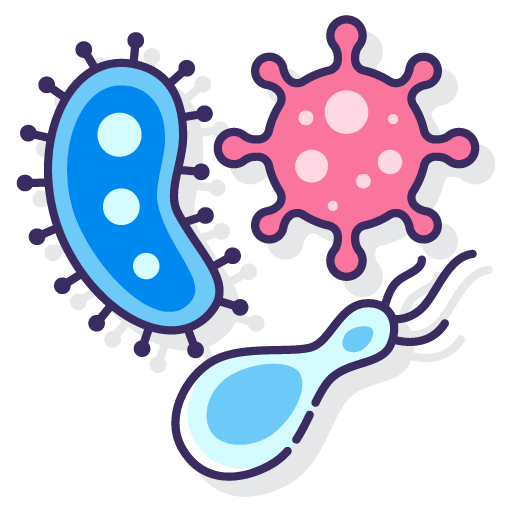
Where to find probiotics?

The first batch of probiotics
The first batch of probiotics in human body is came from mother’s vagina. As early as when the mother is pregnant, the microbes have been passed from the placenta to the fetus, and then at the time of delivery, the probiotics in the mother’s vagina are passed to the baby and it is the first gift to the baby. The first gift is conducive to the healthy growth of the baby. Conversely, the intestinal microbiota of infants delivered by caesarean section is different from that of vaginal delivery. They are also at higher risk of allergic diseases and autism, and the structure of the intestinal microbiome is roughly formed after about three years old. Therefore, probiotics are very important for the healthy growth of babies is very important.
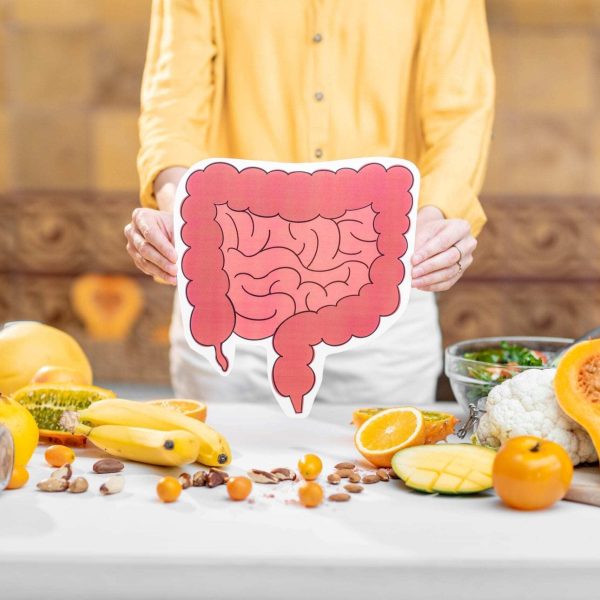
Where can you find probiotics?
Probiotics can be found in many foods, especially dairy products, soy products and fermented foods, such as yoghurt, buttermilk, pickles, kimchi, natto, kefir, sauerkraut, miso, kombucha, etc.

The benefits of probiotics
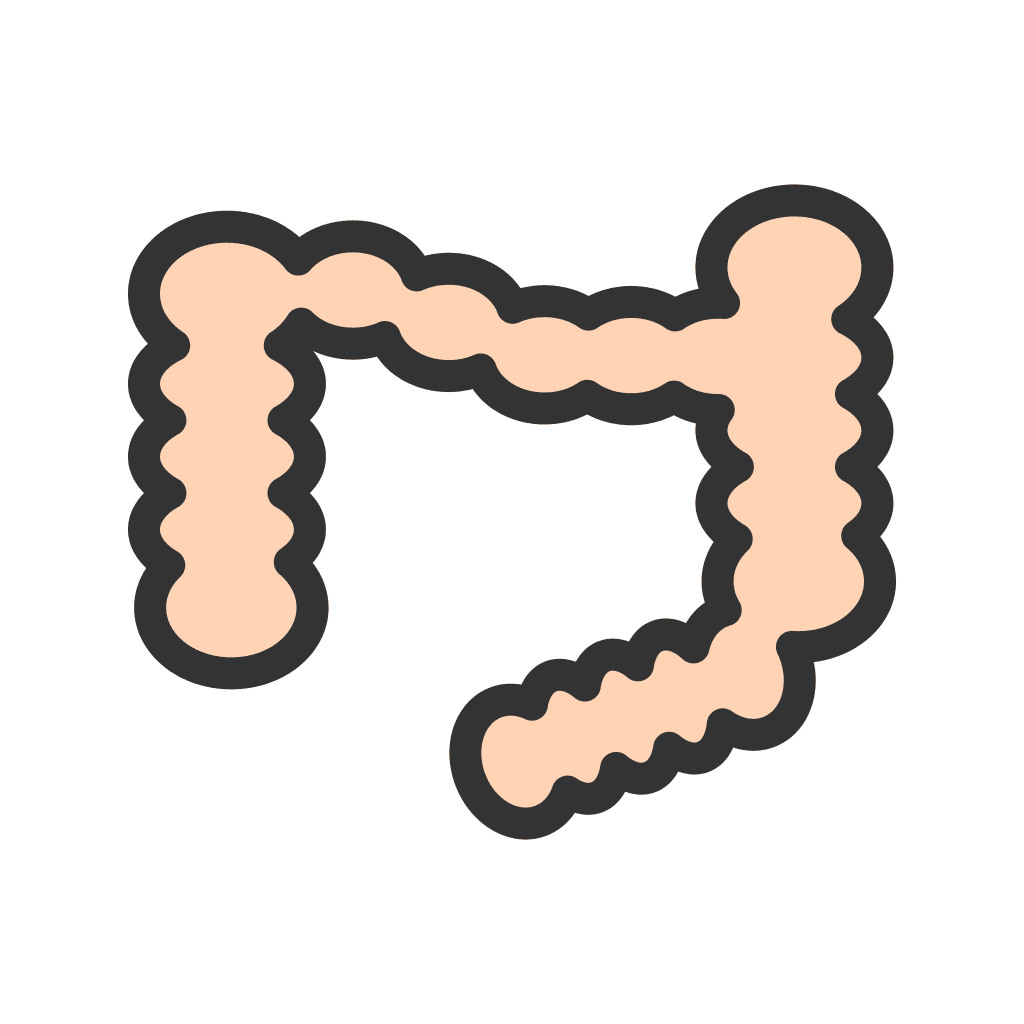 Guts health
Guts health Controlling immune system
Controlling immune system Against Obesity
Against Obesity Mental Health
Mental Health
The most important benefit of probiotics is to improve the intestinal environment and digestive system. They produce different types of enzymes to digest food, produce many vitamins, folic acid, amino acids and other substances needed by the human body, and also can decompose harmful substances and metabolic drugs. Keep the intestinal cells tightly connected and prevent the invasion of harmful bacteria and viruses. Probiotics can alleviate gastroenteritis and diarrhea, including diarrhea caused by antibiotics, irritable bowel syndrome (IBS), or Clostridioides difficle infection. On the other hand, probiotics can regulate intestinal activity, increase peristalsis, and improve constipation. The so-called disease is imported from the mouth. Pathogens can easily enter the body from the digestive tract. Probiotics produce different antibacterial substances, such as organic acids, enzymes, hydrogen peroxide, bacteriocins, and antimicrobial peptides. Or compete with pathogens, preventing them from joining the host cells. In addition, patients suffering from inflammatory bowel disease (IBD) often have abnormal intestinal microbial composition, and probiotics have the function of reducing inflammation. They produce short chain fatty acids (SCFAs). Reduce the degree of inflammation and promote the restoration of the balance of the microbial ecology in the intestinal tract. Therefore, probiotics have become the direction of potential treatment options. There are currently positive developments in this area.
Probiotics are excellent in regulating the immune system and anti-allergic. Controlling inflammatory bowel disease is an example. Currently, there are a large number of scientific studies on probiotics supporting the use of probiotics in diseases related to the immune system and allergies, such as atopic dermatitis, asthma, allergic rhinitis, food allergies, etc. To achieve homeostasis by reconciling the balance between triggering and suppressing immune response mechanisms, such as regulating the number and activity of Th1 and Th2 in helper T cells, and adjusting the content of different cytokines.
Obesity and diabetes are very common chronic diseases. They are the result of an imbalance in central energy metabolism due to excessive energy intake. Too much sugar will overload the cells, increase blood sugar, and convert it into fat, which will cause chronic inflammation. Too much cholesterol will form insoluble plaques that accumulate in the blood vessel wall, causing chronic inflammation and increasing the risks of cardiovascular disease. Probiotics can regulate the secretion of gastrointestinal hormones, lower blood sugar, maintain the homeostasis of sugar and fat metabolism, and reduce the risk of cholesterol accumulation. In addition, probiotics also affect the control of the hungry signal and achieve the effect of suppressing appetite.
Many studies have pointed out that the gut microbiome can affect brain information transmission and mental health, such as emotions, stress, anxiety, autism, depression, Alzheimer’s disease, etc. They are all related to the gut microbes. This is the mechanism that the gut microbiota regulates the connection between the intestine and the brain, which is the gut-brain axis. Studies have found that probiotics produce neurotransmitters, including tryptophan, γ-aminobutyric acid, serotonin, noradrenaline, etc. , it could reduce anxiety and depression symptoms, and even improve autism. The relationship between the gut microbiome, probiotics, and mental health has become a new field in biomedical research.
Bifidobacterium lactis
Lactobacillus paracasei
Lactobacillus plantarum
Bifidobacterium lactis
Allergy is a common health problem all over the world, including allergic asthma, allergic rhinitis, atopic dermatitis etc. Allergy is a phenomenon of overreaction of the immune system. Among them, the balance of Th1 cells and Th2 cells in T helper cells is a key. If the Th2 reaction is excessive, it is easy to produce allergies. On the contrary, Th1 can inhibit allergic reactions. In a study on allergic asthma, mice were injected with ovalbumin (OVA) as the allergen to cause allergic asthma. Two groups of rats were given different doses of Bifidobacterium lactis GKK2 strain preparations and passed through the trachea. After the contraction drug stimulation, the airway resistance of the rats taking GKK2 was significantly lower than that of the rats without GKK2 at different drug doses, indicating that GKK2 is effective in improving asthma.
Allergies can trigger an increase in allergy-related IgE antibodies, stimulate the release of mast cells and eosinophils, and trigger the proliferation of macrophages to fight allergens and cause a severe immune response. The number of macrophages in mice fed high-dose GKK2 was significantly reduced, and the IgE concentration against OVA and the number of eosinophils in the serum of the two groups of low and high-dose GKK2 were significantly reduced, and the content of IgG2a antibody that can inhibit allergies was also effectively increased. Prove that the allergy indicators of the immune system are consistent with improving the performance of allergic asthma.
Resistance to virus invasion is also an important function of Bifidobacterium lactis GKK2. In the culture cell experiment, different concentrations of GKK2 fermentation liquid were used, and influenza A virus H1N1 was added at different times to simulate pre-treatment, co-treatment, and post-treatment. It is found that GKK2 significantly improves the cell survival rate in the above three cases, and it is not toxic to cells. Combined with the results of other studies, it is deduced that GKK2 can prevent the virus from joining with cells, inhibit the synthesis of the virus or inhibit the release of the virus from the cell; in addition, the metabolites of GKK2 include acetic acid and propionic acid, which may be helpful. For the treatment of viral infections.
In another double-blind randomized controlled experiment, participants received influenza A vaccine virus strain injections. Participants in the treatment group consumed milk with Bifidobacterium lactis, and then measured the amount of IgG antibodies against the vaccine in their blood at different times , The amount of IgA and IgM antibodies against the vaccine in the saliva, and other immune response parameters, showed that the antibody content of participants taking Bifidobacterium lactis supplements was significantly increased, reflecting that the bacteria’s mucosal-related immune response and systemic immune response are both There is an improvement, and it will not cause an excessive immune response that is not targeted at the target, and the effect is safe.
In another double blind randomised controlled experiment, both group of participants receive the vaccination of influenza A virus strain. The treated group of participants drink the milk contained Bifidobacterium lactis. The measurement of anti-strain IgG in the blood and anti-strain IgA and IgM in the saliva is performed in the different intervals. It is observed that the amount of antibodies is dramatically elevated when the participants drink the milk with Bifidobacterium lactis, demonstrating that the bacteria can boost mucosa-associated immune response and systemic immune response, but will not cause the non-specific excessive hypersensitivity. The effect is safe.
The intestine controls the digestion and absorption of nutrients by the human body and is considered to be the foundation of the acquired. In addition to regulating the immune system and preventing the invasion of pathogens, Bifidobacterium lactis is also very effective in regulating gastrointestinal functions. Bifidobacterium lactis can promote intestinal peristalsis, increase bowel frequency and soften stools, and improve constipation. On the other hand, Bifidobacterium lactis can reduce diarrhea in children and reduce diarrhea caused by taking antibiotics. During the treatment of Helicobacter pylori, patients taking Bifidobacterium lactis supplements have a higher success rate than the control group, and adverse side effects are also significantly reduced. The above functions are supported by double-blind randomized controlled experiments.



Lactobacillus paracasei
Probiotics are used to promote health in many ways, one of its potential function is to lower blood sugar, especially the GKS6 strain of Lactobacillus paracasei. High-sugar and high-fat diets are the main culprits of diabetes, and cause fat accumulation to produce excessive ketones and uric acid, which makes the condition more complicated. A controlled experiment divided mice into groups. Some of them used a high-fat diet to induce hyperglycemia. Some mice that were fed GKS6 at the same time had significantly lower body weight and liver fat gains than those on a high-fat diet alone. Measure the content of various metabolites in the serum of rats and found that GKS6 not only significantly prevents the increase in blood sugar caused by high-fat diet, but also effectively reduces the increase in triglycerides, and effectively reduces the increase in ketone bodies and uric acid caused by excess fat ; At the same time, liver and kidney function indicators remain normal, showing that GKS6 is safe and effective.
In addition to lowering blood sugar, Lactobacillus paracasei GKS6 has also been used to relieve alcoholic liver disease, including fatty liver caused by excessive alcohol. In a mouse control experiment, the increase in serum alanine transferase (ALT) of the mice that ate a high-alcohol diet and GKS6 was significantly lower than that of the mice on a pure high-alcohol diet, and effectively reduced serum triglycerides. The total cholesterol increased, and the content of triglycerides and total cholesterol in the liver was lower than that of rats on a high-alcohol diet. The increase in serum alanine aminotransferase is an indicator of liver cell damage, so Lactobacillus plantarum can reduce the damage of alcohol to the liver. One of the functions of the liver is detoxification. Liver cells have glutathione and catalase to decompose harmful free radicals and reactive oxygen species molecules to reduce oxidation Destruction of cells by substances. Experiments have shown that the glutathione and catalase activities in the liver of mice taking GKS6 are significantly higher than those of mice on a high-alcohol diet. Gastrointestinal tissue sections also show that alcohol-induced tissue necrosis has improved.
Lactobacillus paracasei GKS6 has a special function for maintaining bone health. There are experiments have used ovariectomy (OVX) mice to simulate the state of osteoporosis caused by hormone imbalance. The bone health indicators of OVX mice taking GKS6, whether it is femoral trabecular thickness (trabecular thickness), bone mineral density ( Both bone mineral density and trabecular separation are significantly improved, and the effect is comparable to the treatment of osteoporosis drug alendronate sodium. Further experiments found that the expression of genes for bone formation increased, and the expression of genes for osteoclasts decreased, showing that it is beneficial to bone health.
Hundreds of billions of microbes live in the human intestine, communicating with the immune system under the intestinal cells, and then communicating information with other organs, such as the skin. Like many probiotics, Lactobacillus paracasei can improve the intestinal microbial ecology and regulate the immune system, such as inhibiting the response of T helper cells that cause inflammation, and promoting the inhibition of cytokines IL-10 and the production of FoxP3+ T regulatory cells. The latest research has found that Lactobacillus paracasei produces extracellular vesicles. Through the endoplasmic reticulum stress mechanism in the cell, it strengthens the production of anti-inflammatory substances and helps control inflammatory bowel disease (IBD). Lactobacillus paracasei also promotes the production of cytokine TGF-β to maintain the integrity of the skin barrier, reduce allergic inflammation and reduce water loss.
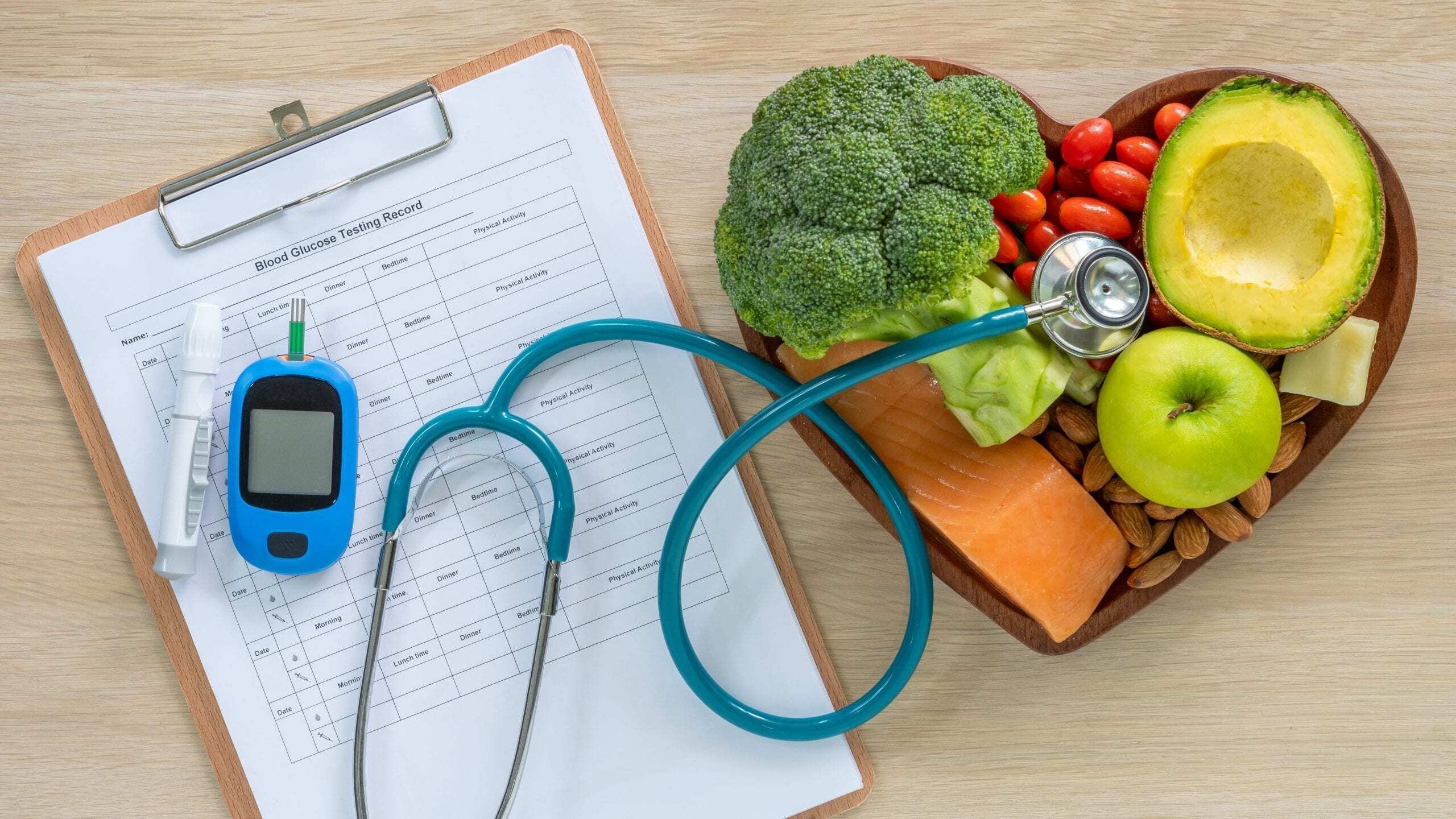



Lactobacillus plantarum
Excessive intake of fat will accumulate in fat cells in the liver and other parts of the body. In addition to increasing triglycerides and cholesterol in the blood, it also triggers chronic inflammation and it possibly rise up the risk of getting high-risk diseases diabetes, high blood pressure, cardiovascular, cerebrovascular diseases and fatty liver. In a control experiment using white mice, a group of mice fed a high-fat diet plus Lactobacillus plantarum had a lower weight gain than the high-fat diet group and the normal diet control group. The increase in total fat and visceral fat was both It is lower than the normal group. If we observe the effect of Lactobacillus plantarum dose on fat intake, we find that serum triglyceride, low-density lipoprotein cholesterol to high-density lipoprotein cholesterol ratio (LDL-cholesterol/HDL-cholesterol ratio) is positively correlated with the dose. The increase in HDL-cholesterol is also proportional to the dose, the amount of triglycerides and cholesterol in the stool. The liver and adipose tissue slices of the mice that took Lactobacillus plantarum also found that the fat particles were significantly smaller than those in the high-fat diet group. In general, Lactobacillus plantarum has the effect of inhibiting fat accumulation, promoting fat degradation and metabolism and excretion.
Too much fat can distort the normal energy metabolism path, produce ketone bodies and cause uric acid to accumulate, causing gout. In a mouse control experiment, Lactobacillus plantarum can significantly reduce serum uric acid and ketone body levels, which is positively correlated with dose. In the cultivation experiment, the ability of Lactobacillus plantarum to digest the precursor of uric acid was better than other probiotics. It is proved that Lactobacillus plantarum can help correct the adverse effects of excessive fat on the deviation of metabolic pathways.
Excessive drinking is also a common health problem for modern people. Lactobacillus plantarum has been used to relieve alcoholic liver disease and reducing the damage caused by fat to the liver. In a mouse control experiment, the increase in serum alanine transferase (ALT) of the mice with a high-alcohol diet and taking Lactobacillus plantarum was significantly lower than that of the mice with a pure high-alcohol diet. Compare with the rat on a high-alcohol diet. It effectively reduced serum triacids, glycerides, total cholesterol increase, triglycerides and total cholesterol in the liver. An increase in serum alanine aminotransferase is an indicator of liver cell damage, and excessive accumulation of fat in the liver is also abnormal. Therefore, Lactobacillus plantarum can reduce alcohol damage to the liver. One of the functions of the liver is detoxification. Liver cells have glutathione and catalase to decompose harmful free radicals and reactive oxygen species molecules to reduce oxidation destructing cells. Experiments show that the activity of glutathione and catalase in the liver of mice that eat Lactobacillus plantarum is significantly higher than that of mice on a high-alcohol diet, which helps to reduce cell oxidation.
Like many probiotics, Lactobacillus plantarum has the function of regulating the immune system, such as relieving atopic dermatitis. In a double-blind randomized controlled trial, in patients taking Lactobacillus plantarum, the SCORAD score used to assess severity was generally effectively reduced, causing inflammation of interleukins (interleukins) IL-4 and IL-17, and inhibiting The increase in Foxp3+ content of immune response shows that Lactobacillus plantarum effectively balances the immune system and relieves atopic dermatitis.
An interesting observation is that Lactobacillus plantarum has the effect of maintaining bone health. Experiments have used ovariectomy (OVX) mice to simulate the state of osteoporosis caused by hormone imbalance. OVX mice that took Lactobacillus plantarum had shorter femoral trabecular separation and decreased osteoporosis performance. Further experiments found that the expression of genes for bone formation increased, and the expression of genes for osteoclasts decreased, showing that it is beneficial to bone health.
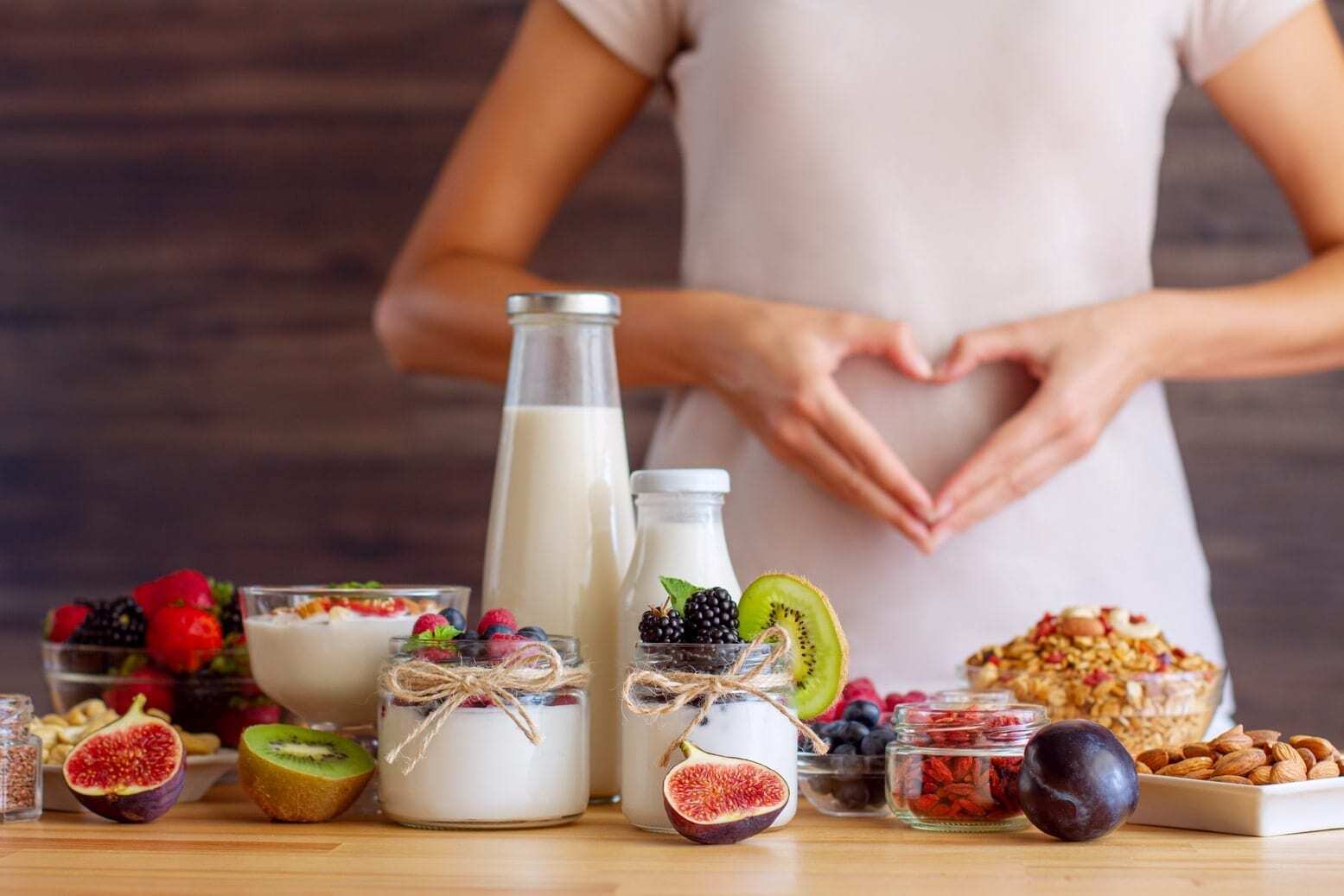



Probiotics? Prebiotics? Postbiotic?
Both humans and probiotics are living organisms. We think that if probiotics die, their functions will be lost and they will not work. So far, it turns out that it is not. Scientists have discovered that dead bacteria have similar effects to living bacteria. In fact, the derivatives of living probiotics, including dead bacteria, cell debris, and metabolites, are beneficial to the human body, collectively referred to as postbiotics. As for the prebiotics that we often hear, they are the food of probiotics, but the host can not digest them, and are beneficial to the health of the host. Common ones include inulin, galactooligosaccharides and fructose oligosaccharides. Sugar (fructooligosaccharides). Many probiotic products are used together with prebiotics to enhance their effectiveness, and they become synbiotics.
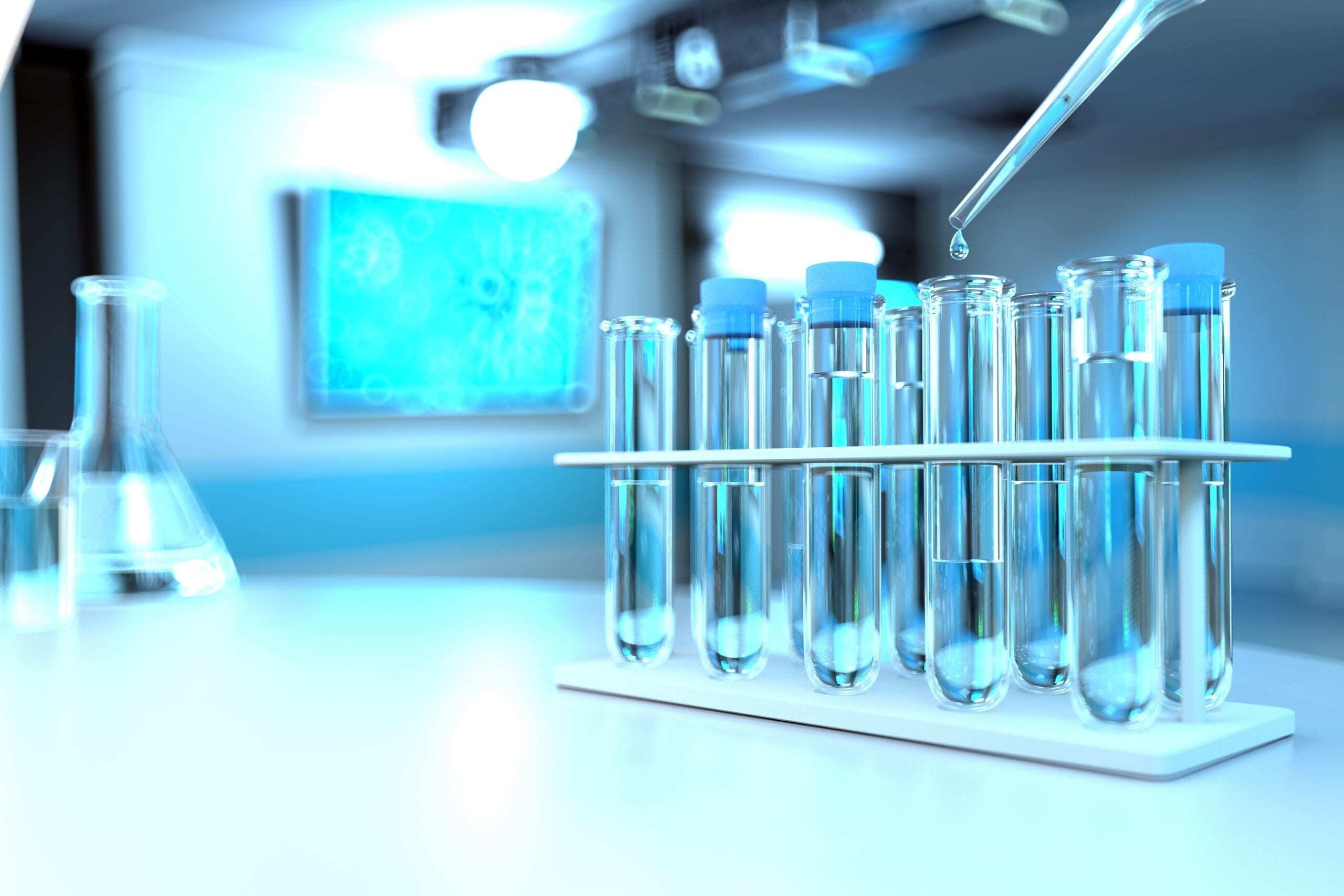
Know more about postbiotics
There are many types of postbiotics, including cell-free supernatants extracted from culture medium (supernatants), cell fermentation products, cell wall fragments after broken cells, cell lysates, extracellular vesicles, etc. In terms of chemical properties, metazoans also include exopolysaccharides, teichoic acid, peptidoglycan, enzymes, short chain fatty acids (SCFAs), organic Organic acids, bacteriocins, vitamins, folic acid, polyphenols, and so on, are all in abundance. In fact, many essential nutrients, such as vitamin B12, vitamin K, and folic acid, are synthesized and supplied by probiotics. Our health really depends on their contribution.
The postbiotics have the activity of imitating the living bacteria of probiotics and perform similar functions. For example, inactivated Lactobacillus casei (Lactobacillus casei) can increase the production of cytokines; inactivated Bifidobacterium (Bifidobacterium) can induce anti-inflammatory responses; and extracellular polysaccharides can stimulate T cells and natural killer cells of the immune system (Natural killer cells) hyperplasia, and there are reports that it has the effect of reducing cholesterol absorption, protecting the cardiovascular system, anti-ulcers, and anti-oxidation; the antioxidant enzymes produced by probiotics can eliminate reactive oxygen species (reactive oxygen species); protecting cells Protect from free radicals (free radicals). Short-chain fatty acid is one of the common probiotic metabolites. Butyrate is the energy source of intestinal cells, helps intestinal cell regeneration and maintains the integrity of the intestinal epithelium; it has the function of suppressing the immune system and it can inhibits atherosclerosis (atherosclerosis) caused by inflammation of the inner wall of blood vessels. Short-chain fatty acids stimulate the production of some gut hormones that inhibit energy production, such as peptide YY, to reduce body fat and control appetite by regulating the pathway of energy metabolism.

後生元有模仿益生菌活菌的活性,發揮近似的功能。例如滅活的乾酪乳桿菌(Lactobacillus casei)可以提升細胞因數(cytokines)的產生;滅活的雙歧桿菌(Bifidobacterium)能夠引導抗發炎反應;胞外多糖能夠刺激免疫系統的T細胞和天然殺手細胞(natural killer cells)增生,又有報告指出它有減少膽固醇吸收、保護心血管、抗潰瘍、抗氧化的效果;益生菌產生的抗氧化酶類可以消除活性氧類(reactive oxygen species);保護細胞免受自由基(free radicals)的傷害。短鏈脂肪酸是其中一種常見的益生菌代謝物,當中的丁酸(butyrate)是腸道細胞的能量來源,幫助腸道細胞再生,維持腸道上皮完整;它有抑制免疫系統的功能,又可以因抑制血管內壁發炎引致的動脈粥樣硬化(atherosclerosis)。短鏈脂肪酸通過調控能量代謝路徑,刺激一些抑制能量產生的腸胃激素(gut hormones)、例如YY肽(peptide YY)的產生,達到減少體內脂肪和控制食欲的效果。

Why postbiotics are needed?
Since probiotics are so beneficial, effective and safe, why do we need postbiotics? Although probiotics are very safe and the safe dose is very high, they need to be used with caution for some chronically ill, intestinal barriers, or people with very weakened immunity, considering the risk of infection and over-stimulation of the immune system. It cannot be ruled out that the opportunity to obtain antibiotic resistance can be avoided, so the risk of using live bacteria can be avoided, and the safety may be better. Because the postbiotics are not live bacteria, it can reduce the dependence on low-temperature storage, the storage is easier, the shelf life can be longer, and the transportation is more convenient. The potential of postbiotic applications in the health industry is a new field in the future.
List of Probiotics Products
References:
Kerry RG, Patra JK, Gouda S, Park Y, Shin HS, Das G. Benefaction of probiotics for human health: a review. Journal of Food and Drug Analysis, 2018, 26(3), 927-939. https://doi.org/10.1016/j.jfda.2018.01.002
Sanders ME, Merenstein DJ, Reid G, Gibson GR, Rastall RA. Probiotics and prebiotics in intestinal health and disease: from biology to the clinic. Nature Reviews Gastroenterology & Hepatology, 2019, 16, 605-616. https://doi.org/10.1038/s41575-019-0173-3
Wang HT, Anvari S, Anagnoustou K. The role of probiotics in preventing allergic disease. Children, 2019, 6, 24. doi:10.3390/children6020024
Tillisch K. The effect of gut microbiota on CNS function in humans. Gut Microbes, 5(3), 404-410. DOI: 10.4161/gmic.29232
Sarker A, Sehto SM, Harty S, Dinan TG, Cryan JF, Burnet PWJ. Psychobiotics and the manipulation of bacteria-gut-brain signals. Trends in Neurosciences, 2016, 39(11),763-781. http://dx.doi.org/10.1016/j.tins.2016.09.002 763
Noonan S, Zaveri M, Macaninch E, Martyn K. Food & mood: a review of supplementary prebiotic and probiotic interventions in the treatment of anxiety and depression in adults. BMJ Nutrition, Prevention & Health, 2020, 0. doi:10.1136/bmjnph-2019-000053
Moore RE, Townsend SD. Temporal development of the infant gut microbiome. Open Biology, 2019, 9, 190128. http://dx.doi.org/10.1098/rsob.190128
Medical News Today. Benefits of probiotics. Accessed on 15 Decemeber 2020. Available at: https://www.medicalnewstoday.com/articles/264721
Medical News Today. Probiotic foods: what to know? Accessed on 15 Decemeber 2020. Available at: https://www.medicalnewstoday.com/articles/323314
Cleveland Clinic. Probiotics. Accessed on 15 Decemeber 2020. Available at: https://my.clevelandclinic.org/health/articles/14598-probiotics
Harvard Health Publishing. Health benefits of taking probiotics. Accessed on 15 Decemeber 2020. Available at: https://www.health.harvard.edu/vitamins-and-supplements/health-benefits-of-taking-probiotics
| PGut Series | PGut VitaBac Immune Pro | PGut Premium E3 | PGut Allergy E3 | PGut Supremeslim E3 | PGut Mood+ E3 | PGut Kids Allergy Relieve Probiotics |
|---|---|---|---|---|---|---|
|
PGut Series Price |
PGut VitaBac Immune Pro $440 |
PGut Premium E3 $380 |
PGut Allergy E3 $380 |
PGut Supremeslim E3 $380 |
PGut Mood+ E3 $380 |
PGut Kids Allergy Relieve Probiotics $320 |
|
PGut Series Target group |
PGut VitaBac Immune Pro Adults (3 years old or above) |
PGut Premium E3 Adults (3 years old or above) |
PGut Allergy E3 Adults (3 years old or above) |
PGut Supremeslim E3 Adults (3 years old or above) |
PGut Mood+ E3 Adults (3 years old or above) |
PGut Kids Allergy Relieve Probiotics Kids |
|
PGut Series Product type |
PGut VitaBac Immune Pro Capsules |
PGut Premium E3 Capsules |
PGut Allergy E3 Capsules |
PGut Supremeslim E3 Capsules |
PGut Mood+ E3 Sachet powder |
PGut Kids Allergy Relieve Probiotics Sachet powder |
|
PGut Series Number of Probiotics + Prebiotics |
PGut VitaBac Immune Pro 10+3 |
PGut Premium E3 8+3 |
PGut Allergy E3 7+3 |
PGut Supremeslim E3 11+3 |
PGut Mood+ E3 6+3 |
PGut Kids Allergy Relieve Probiotics 6+3 |
|
PGut Series Postbiotics |
PGut VitaBac Immune Pro HK-LP |
PGut Premium E3 HK-LP |
PGut Allergy E3 HK-LP |
PGut Supremeslim E3 HK-LP |
PGut Mood+ E3 HK-LP |
PGut Kids Allergy Relieve Probiotics  |
|
PGut Series Target disease/ health concern |
PGut VitaBac Immune Pro Strengthens your immunity and Rejuvenates |
PGut Premium E3 Adjust overall intestinal health and improve immunity |
PGut Allergy E3 Prevent skin allergy and relieve symptoms of nasal allergy |
PGut Supremeslim E3 Weight management, reducing sugar absorption, detoxification |
PGut Mood+ E3 Improve sleeping quality, maintain relaxation |
PGut Kids Allergy Relieve Probiotics Regulate children's immune system and improve children's anti-allergy ability |
|
PGut Series Link Page |
PGut VitaBac Immune Pro Learn more |
PGut Premium E3 Learn more |
PGut Allergy E3 Learn more |
PGut Supremeslim E3 Learn more |
PGut Mood+ E3 Learn more |
PGut Kids Allergy Relieve Probiotics Learn more |
Hou YH, Lin SW, Zhao C, Lu HC, Chen YL, Lin WH, Chen CC. Effect of Bifidobacterium lactis GKK2 on OVA-induced asthmatic mice. Hans Journal of Biomedicine, 2019, 9(2), 70-80.
Hou YH, Lin SW, Wu CJ, Chen YL, Chen CC. Potential protective effect of lactic acid-producing bacteria against influenza A virus infection. Journal of Testing and Quality Assurance, 2020, 9, 148-154.
Rizzardini G, Eskesen D, Calder PC, Capetti A, Jaspersen L, Clerici M. Evaluation of the immune benefits of two probiotic strains Bifidobacteriu animalis ssp. lactis, BB-12 and Lactobacillus paracasei ssp. paracasei, L. casei 431 in an influenza vaccination model: a randomised, double-blind, placebo-controlled study. British Journal of Nutrition, 2012, 107, 876-884.
Jungersen M, Wind A, Johansen E, Christensen JE, Stuer-Lauridsen B, Eskesen D. The science behind the probiotic strain Bifidobacterium animalis subsp. lactis BB-12. Microorganisms, 2014, 2, 92-110.
Hill D, Sugrue I, Tobin C, Hill C, Stanton C, Ross RP. The Lactobacillus casei group: history and health related applications. Frontiers in Microbiology, 2018, 9, 2107.
Wang CS, Lin SW, Zhao C, Chen YL, Tsai PC, Chen CC. Hypoglycemic effect of Lactobacillus paracasei GKS6. Hans Journal of Food and Nutrition Science, 2019, 8(1), 9-16.
Tsai YS, Lin SW, Chen YL, Chen CC. Effect of probiotics Lactobacillus paracasei GKS6, L. plantarum GKM3, and L. rhamnosus GKLC1 on alleviating alcohol-induced alcoholic liver disease in a mouse model. Nutrition Research and Practice, 2020, 14, e41.
Yang LC, Lin, SW, Li IC, Chen YP, Tzu SY, et al. Lactobacillus plantarum GKM3 and Lactobacillus paracasei GKS6 supplementation ameliorates bone loss in ovariectomized mice by promoting osteoblast differentiation and inhibiting osteoclast formation. Nutrients, 2020, 12, 1914. doi:10.3390/nu12071914.
Choi JH, Moon CM, Shin TS, Kim EK, McDowell A, Jo MK, Joo YH, Kim SE, Jung HK, Shim KN, Jung SA, Kim YK. Lactobacillus paracasei-derived extracellular vesicles attenuate the intestinal inflammatory response by augementing the endoplasmic reticulum stress pathway. Experimental & Molecular Medicine, 2020, 52, 423-437.
Benyacoub J, Bosco N, Bkanchard C, Demont A, Philippe D,Castiel-Higounenc I, Gueniche A. Immune modulation property of Lactobacillus paracasei NCC2461 (ST11) strain and impact on skin defences. Beneficial Microbes, 2014, 5(2), 129-136.
Lin SW, Shu JR, Chang WT, Wang CS, Zhao C, et al. Effect of Lactobacillus plantarum GKM3 on obesity in high-fat diet-induced rats. Hans Journal of Food and Nutrition Science, 2017, 6(2), 85-95. https://doi.org/10.12677/hjfns.2017.62009
Hsu CL, Hou YH, Wang CS, Lin SW, Jhou BY, et al. Antiobesity and uric acid-lowering effect of Lactobacillus plantarum GKM3 in high-fat-diet-induced obese rats. Journal of American College of Nutrition, 2019. https://doi.org/10.1080/07315724.2019.1571454
Tsai YS, Lin SW, Chen YL, Chen CC. Effect of probiotics Lactobacillus paracasei GKS6, L. plantarum GKM3, and L. rhamnosus GKLC1 on alleviating alcohol-induced alcoholic liver disease in a mouse model. Nutrition Research and Practice, 2020, 14, e41.
Yang LC, Lin, SW, Li IC, Chen YP, Tzu SY, et al. Lactobacillus plantarum GKM3 and Lactobacillus paracasei GKS6 supplementation ameliorates bone loss in ovariectomized mice by promoting osteoblast differentiation and inhibiting osteoclast formation. Nutrients, 2020, 12, 1914. doi:10.3390/nu12071914.
Prakoewska CRS, Bonita L, Karim A, Herwanto N, Umborowati MA, et al. Beneficial effect of Lactobacillus plantarum IS-10506 supplementation in adults with atopic dermatitis: a randomized controlled trial. Journal of Dermatological Treatment, 2020 Nov 8, 1-8. doi: 10.1080/09546634.2020.1836310.

